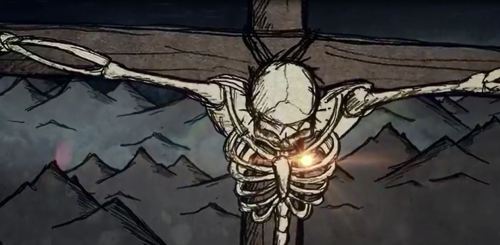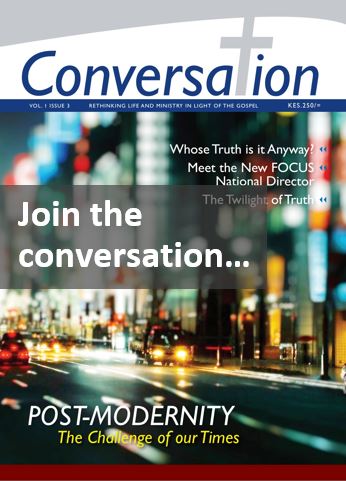
You’d think the supermarket has removed the dilemma of making choices. Where you had one or two items in your local kiosk to choose from now you have a whole aisle. As long as you have the money then you have all the options. But you and I know it’s actually made it harder. Pick a commodity and you now have a whole range of products to choose from. Unfortunately, the economics of prices don’t help either because even when you are on a budget these options still glare at you. And how do you know if the cheap one isn’t substandard or the pricey one is actually good? But this dilemma isn’t just there when we are choosing what to buy. Young men are confronted with it when picking a partner. When’s the right time? Who’s the right girl? Is she really the one? What if I regret it later? After all, we are told the beautiful ones are not yet born. Or take the dilemma of finding a house or to be more spiritual, the decision to find a church. There are so many good and yet varied ones. The big, the small, the conservative, the vibrant, the modern, the spirit filled…all on the same mile length. So many to pick from. How can one ever make a decision?
But these dilemmas don’t wear the same weight. While you can close your eyes and pick the nearest item on the shelf you might need to think a bit before picking a spouse or a career. While the price range might dictate the kind of house you live in, finding a church will involve a bit more investigation. In other words, not all dilemmas should keep you awake at night because not all choices are life-altering. But speaking of life, how can you know you’ve made the right choices on the big questions? How can you know that you are living right? That on the things that matter you are on the right side? Now some people would say whatever makes you happy is the right choice. Others suggest picking moderation. Do everything but to a limit. Invest far and wide and you’ll cover your back. But this doesn’t help and a good number have been plagued with indecision for years. They take forever to decide on anything. They move from church to church, from relationship to relationship, from one job to another and even when they make a decision they keep analysing and overanalysing. Don’t you just hate that? Is there hope for such people? Here’s a suggestion.
Be ready to Die for Something
Contrary to the wisdom of the world that says keep looking, the Bible tells us to invest where we can’t ever go wrong. Make the right decision on the big questions of life and everything else in light of that. And when you do go all in. What do I mean? You see the moment we take a step back and consider how little time we have down here many things fall into perspective. The most important question becomes does it really matter a few years from now. But most importantly what difference does it make a lifetime from now? But it’s not only that. Looking at Jesus we see a model for life. Jesus wasn’t plagued with indecision like many of us are. He knew where he came from, he knew he was on a short mission on earth and soon he would be back with his father. For that reason, he lays down his life when he could easily pick it up. But that was worth it. By choosing to live for God and his Gospel he actually lived a fuller life than the man who keeps guessing his next move or the one who never makes one. Jesus taught us we will always be plagued with indecision until we find something worth dying for. That statement in Mark 8:35 is actually his own motto for life. He says:
35 For whoever wants to save their life will lose it, but whoever loses their life for me and for the gospel will save it. Mark 8, NIV.
Jesus invites us to a way of life that he has walked in. He tells us any other choice will break you and you’ll never be sure. But as one who knows the future like the past, he says this is it. Lay down your life for him and his Gospel and you’ll truly live. I don’t mean die literally though for some it might come to that. But he’s saying make him and his Gospel the priority and everything else will fall into place. Once you secure your eternal future then you don’t have to be plagued with indecision on the other trivial matters. But even in the important ones, once the priority is Jesus and his Gospel then the weight is lifted off. You don’t have to get the perfect church, only one where Christ is the focus not the man of God. You don’t have to find the perfect job or house or even a spouse. Only one where the commitment to the Gospel won’t be compromised. But this also eliminates indecision. Why?
You stop Looking for Salvation Elsewhere
You see the man who can’t choose is actually looking for someone or something to save him. He can’t choose a career because he wants it to save him. She can’t choose a partner because she’s looking for a saviour in a young sinful man. How crazy is that? He can’t choose a church because he’s looking for a community that can save him. And even if he gets a good one he’ll for sure regret it because he’s after perfection. She won’t settle on a job because she’s looking for salvation and no job can offer that. But the man who knows his life is secure in Christ shouldn’t be too worried even if he gets a decision wrong. If he looks to Jesus he’ll see that God can work with our weak minds and fallible decisions for our good and his glory. Once you eliminate that desire for salvation you also start seeing things a bit more clearly. You stop analysing and overanalysing because on the things that matter you are already secure. But you can also present your choices to Jesus and weigh them on how much they realign you with serving him and the advance of the Gospel. So take it easy and make that decision.













